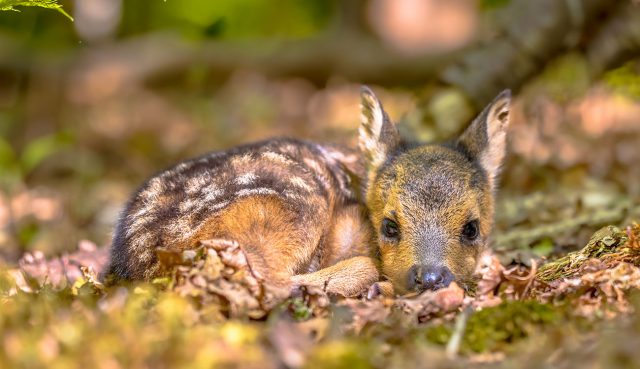Leave Baby Animals Alone
With the warm spring weather upon us, animals are preparing for the arrival of their young. Parenting strategies used by animals are quite a bit different then ours. For example, it is not unusual for a doe to leave her fawn alone in a grassy area for long periods of time or a mother raccoon to leave her babies for the day sleeping in a hollowed tree, tucked away under a deck, or even in a garbage can! Do not be concerned, these babies have not been abandoned or orphaned.
Most animals will leave their young unsupervised for long periods of time while they forage for food. Often mothers will distance themselves from their young to prevent predators from finding her newborns. It is extremely rare for animals to abandon their young so even if you don’t see a mother around, she is not far away and she is very aware of where she left her young. Intervention by humans during this stage of their life process is not needed, is often harmful to the young, and puts a lot of undue stress on the mother. These maternal instincts have been evolving over the last 300 million years.
Under various Canadian laws, regulations have been developed that make it an offence to harm, disturb, or even possess wildlife without a valid permit. This includes moving them or keeping them as pets. Contravention of these regulations can range from monetary fines (up to $100,000), imprisonment (for up to five years), or a combination of both.
Enjoy the beauty that wildlife has to offer but leave animals to their natural life processes. If you find young wildlife, please do not disturb them, leave the area in the same state you found it, and leave the area quickly.
If you care, leave them there.
By: Base Environment Office






